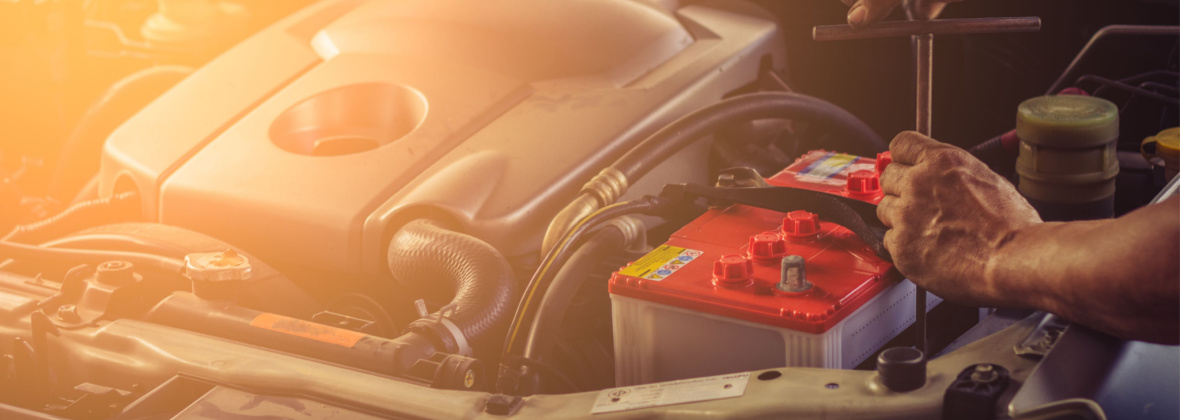3 Things You Need To Know Before Your Next Car Battery Replacement
September 7, 2022
Tires

Need a car battery replacement? Your local TIRECRAFT can handle it. But before you book your next service, make sure you read this important consumer information. These 3 simple tips could save you hundreds of dollars and prevent a host of car battery compatibility issues.
Read on to learn more, or contact your local TIRECRAFT to speak with a car battery replacement specialist right away.
Shop Smart: 3 Critical Car Battery Considerations
1. Some Car Batteries Are Built For Winter Weather
You wouldn’t use summer tires in the snow, and yet many drivers mistakenly choose warm-weather batteries when it’s time for a replacement.
If you live in Ontario’s snow belt region, or anywhere where winter hits hard and temperatures drop down low, you’ll want to find a car battery with a strong Cold Cranking Amp (CCA) rating. The CCA rating refers to the number of amps a 12 – volt battery can deliver at 0°F for 30 seconds while maintaining a voltage of at least 7.2 volts. The higher the CCA rating, the easier it’ll be to start your vehicle in extreme cold.
2. Not All Car Batteries Are Created Equal
There are many different types of car batteries out there, but most drivers only need to know about the two most basic varieties: conventional lead-acid car batteries (AKA standard flooded battery) and more advanced absorbed glass mat (AGM) batteries (AKA deep-cycle batteries).
Compared to a conventional car battery, AGM batteries generally have longer lifespans, better Cold Cranking Amp (CCA) ratings, faster charging times, greater durability and vibration resistance, and low-to-no maintenance, being entirely spill-proof and requiring no electrolyte level replenishment. Their unique structure and properties make them a favorite in race cars and motorcycles.
On the flip side, AGM batteries are more prone to overcharging and thermal runaway, due to their sealed design. They’re also 2-3 times more expensive than a conventional car battery, so they aren’t right for everyone.
At the end of the day, only you can decide what car battery is best for you, but your local TIRECRAFT can help. To book a free consultation and get personalized product recommendations, contact your local TIRECRAFT.
3. The Lifespan Of Your Car Battery Is Not Set In Stone
Most manufacturers recommend replacing your car battery every 3 years or so, but the actual lifespan of most products varies widely, ranging from 2 to 6 years depending on two key factors:
- Heat—Heat facilitates the chemical reaction your car battery uses to generate power, but too much can speed up the rate of degradation. If you live somewhere blessed with balmy weather, your battery probably won’t last longer than 3 years. But if you live somewhere cooler, perhaps along Ontario’s snowbelt, you’ll probably get an additional year or two before you need a replacement. Don’t just accept the manufacturer’s estimate as set in stone; be sure to factor your local weather and temperatures into the equation before you replace a perfectly functional car battery.
- Vibration—Excessive vibration can breakdown your car battery’s internal parts, shaving years off of its estimated lifespan. Make sure you aren’t missing any hold down hardware, and you’ll enjoy a long car battery life.
Book A Free Car Battery Replacement Consultation Near Me
To get more car battery replacement tips, or to schedule a service and get a free quote, use the Find a TIRECRAFT tool on our website.
Back

